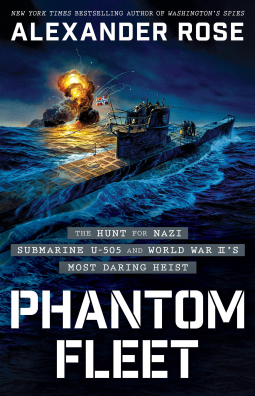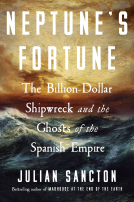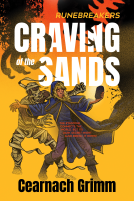
Phantom Fleet
The Hunt for Nazi Submarine U-505 and World War II’s Most Daring Heist
by Alexander Rose
This title was previously available on NetGalley and is now archived.
Send NetGalley books directly to your Kindle or Kindle app
1
To read on a Kindle or Kindle app, please add kindle@netgalley.com as an approved email address to receive files in your Amazon account. Click here for step-by-step instructions.
2
Also find your Kindle email address within your Amazon account, and enter it here.
Pub Date May 20 2025 | Archive Date Jun 20 2025
Talking about this book? Use #PhantomFleet #NetGalley. More hashtag tips!
Description
Shortly before noon on June 4, 1944, the sonar operator on a destroyer prowling off the coast of West Africa heard a sharp, metallic ping. The sound could mean only one thing: The German submarine that their hunter-killer group had been tracking, U-505, was lurking somewhere below. The ensuing struggle between exhausted hunter and venomous prey would make history when American sailors boarded an enemy warship at sea for the first time since the War of 1812.
That day’s victory was the culmination of an unrelenting campaign against the Nazi submarine threat by the U.S. Navy’s “Tenth Fleet”—a mysterious unit that could predict the locations and movement of Hitler’s U-boats. Run by Commander Kenneth Knowles, Tenth Fleet had guided Captain Dan Gallery to U-505; to repay the favor, Gallery was going to steal an Enigma machine for him.
Now all they had to do was to make an entire U-boat, its crew, and its secrets vanish into thin air . . .
In this swashbuckling adventure story, bestselling historian Alexander Rose draws on long-classified encrypted documents and intercepted German transmissions to reveal in full, for the first time, how an owlish egghead and a glory-seeking buccaneer teamed up to score the richest prize on the high seas.
Available Editions
| EDITION | Other Format |
| ISBN | 9780316564472 |
| PRICE | $30.00 (USD) |
| PAGES | 368 |
Available on NetGalley
Average rating from 7 members
Featured Reviews
Nerds can do some really cool things. No, I am not talking about myself (but thank you for thinking about me!). Instead, I am talking about the nerds who fought the Battle of the Atlantic in World War II. The Germans had their nerds. The U.S. and U.K. had Ultra nerds. (Do you see what I did there?) Alexander Rose tells their story in Phantom Fleet.
Sure, you may ask yourself why should we care about nerds? We want men of action! Don't you worry, dear reader. Rose's book culminates in one of the most ridiculous heists in warfare history. I should stress that the book is not a quick rundown of one day where a U.S. hunter-killer group tracked a U-boat down for a final battle. Rose takes his time setting up the board by giving the reader a deep look into naval intelligence and the men who were moving the pieces around. The Germans were winning until they weren't. The U.S. figured things out until they didn't. The U.K. was leading the intelligence war until they were left behind.
There was a lot of one-upsmanship even among the Allies. Rose brings all of these men to life so the reader can understand who they are and why they acted the way they did. For some of them, their instincts would lead to ruin while others would be lauded for being the first Americans to board an enemy warship since 1812. I've read multiple books by Rose and he seems to get better with each release. There is no letdown with this one.
(This book was provided as an advanced reader copy by Netgalley and Little, Brown and Company.)
 Dan O, Bookseller
Dan O, Bookseller
My thanks to NetGalley and Little, Brown and Company for an advance copy of this history about the U-boat battles of World War II, how high the stakes were, and how one operation, covered in a bodyguard of lies, turned the tide for the Allies.
I first became interested in U-boats when I picked up the Time-Life Books collection, The Second World War. Looking back these were a strange series of books, written in a isn't this kind of cool, in a bad way style, with lots of pictures of things blowing up. Das Boot the movie about a German U-boat crew and their service, showed me the reality, the funk of a submarine, the damp, the rotten food, the sinking of boats without warning killing sailors not only by drowning, but by fire or covered in oil. As on reads about submarine warfare, one is amazed how history could have been changed. Both sides didn't understand the other, and in America's case didn't understand our Allies much either. What helped the Allies was the fact that we could read much of what the submarines were being told by their command. Until suddenly the Allies couldn't. And Americans being Americans, a plan was made. Phantom Fleet: The Hunt for Nazi Submarine U-505 and World War II’s Most Daring Heist by Alexander Rose is a fascinating history about a part of the war that has been mythologized quite a bit, and a little bit of a heist tale about trying to steal something from the Germans, but not letting anyone, Allies or Axis, know what happened.
Germany declared war on America following the attack on Pearl Harbor, and dispatched a small group of submarines, U-boats as they were called, to disrupt trade, cause fear, and sink ships. America had no real plan for submarine warfare, and this was soon a huge problem. The shores were bright, Coney Island rides served as beacons for U-boats to tell them their position, and ships were silhouetted in the darkness for torpedos or deck guns to sink. This was the beginning of the Golden Time as the German submariners called it, when record numbers of ships were sent to the bottom. The British offered there help, a way they had determined where U-boats were going to be but America wanted something more. They wanted to find them and sink them. Britain also shared a secret, one so protected that even their Allies were only given a little taste. The British had broken the German codes, and could read much of what was said to the submarine force, within limitations. Soon the Germans were beginning to lose boats, and men, until they changed their code machine. Suddenly it was back to guessing where the U-boats were, something the Americans with British help had become good at. However there was a plan, to steal a working code machine. And not let anyone know it was missing.
I really enjoyed this book. I was familiar with the U-boat wars, but there was a lot of stories and facts that were totally new to me. Rose has a very good style both informative, and with a hint of a thriller writer, making one flip pages to find out what is going to happen, all while learning. Rose has done a lot of research and it shows, covering life on submarines, the people involved, the waters they sailed in, even the ships that were sunk, and sailors who lost their lives. This was a big book that went very fast, and as I said earlier quite entertaining.
Readers of World War II history will learn quite a bit like I did. Naval readers too will enjoy the stories about being under the sea, floating at sea, and in the case of the German crews being miserable at sea. A very good book for Father's Day, and one that I will recommend. I look forward to more by Alexander Rose.
What an informative and entertaining book! It read more like a thriller than a military naval history book. The depth of the research gave insight into the men and the mission to capture a German U-boat. It brought to life the efforts of the U.S. intelligence officers, their superiors, and their British and German counterparts as they played a cat-and-mouse game.
Beginning in 1942, with German U-boats off the eastern coast of the United States disrupting supply shipments, to the capturing of a U-boat in 1944, this story unfolds from the perspective of the U.S. and German naval officers. Along the way, the book recounts the critical work done by the British to crack the German Enigma encrypting device and how the U.S. used the information to hunt down the elusive U-boats and break the back of the German Navy.
I liked how Rose got into the personalities of the men involved, making it an intimate read with a depth not otherwise achievable. Owing to his conversational writing, the book is a captivating account of a single incident during World War II, highlighting its relationship to the war effort. I don't usually read World War II-era books, but I'm glad I made an exception for this book. 5/5 stars.
Thank you, NetGalley and Little, Brown and Company, for an advance copy of this book in exchange for an honest review. All opinions are my own. The publication date is May 20, 2025.
Deep inside the Griffin Museum of Science and Industry in Chicago, Illinois is something rather unexpected: a World War II German U-boat. Thousands of people visit U-505’s cold, claustrophobic interiors annually and step back into the past when it and other submarines like it terrifyingly hunted the world’s oceans.
The story of how U-505, built by Deutsche Werft in Hamburg, Germany and launched in 1941, made its way to Chicago is quite extraordinary. And that’s what Alexander Rose sets out to tell in his new book Phantom Fleet.
Per the book’s description:
In this swashbuckling adventure story, bestselling historian Alexander Rose draws on long-classified encrypted documents and intercepted German transmissions to reveal in full, for the first time, how an owlish egghead and a glory-seeking buccaneer teamed up to score the richest prize on the high seas.
Many thanks to NetGalley and Little, Brown and Company for providing an advance copy of this book to read and review.
Book Summary
In Phantom Fleet, historian Alexander Rose tells a gripping tale of espionage, technology, and high-stakes heroism during World War II. Focusing on the dramatic capture of Germany’s U-505 on June 4, 1944—just two days before D-Day—Rose paints a vivid portrait of one of the most daring naval exploits in American history.
But capturing U-505 wasn’t luck or chance. It was the result of meticulous planning by the US Navy’s mysterious Tenth Fleet and the brilliant but little-known Commander Kenneth Knowles. Behind the scenes, Knowles and his team specialized in decrypting German communications and predicting U-boat movements with uncanny, wizard-like precision and accuracy.
Captain Dan Gallery, a charismatic and daring officer with dreams of capturing a U-boat for himself, meets Knowles. Their combined efforts culminated in not only the capture of U-505—the unluckiest submarine in the entire Kriegsmarine as it happened—but also invaluable intelligence and a coveted Enigma machine.
My Thoughts
Phantom Fleet is a highly enjoyable read! It feels more like a combination of a swashbuckling adventure and a Tom Clancy spy thriller than a history book. It draws you in from start to finish, and is incredibly engaging and well-written.
One of the most fascinating aspects of the book was the “biography” of U-505. This German submarine holds two remarkable distinctions. First, during her fourth war patrol, U-505 sustained the heaviest damage ever survived by a U-boat. Later, however, her luck took a turn for the worse. Her second commander, Kapitänleutnant Peter Zschech, became the only known submariner to commit suicide while submerged. U-505’s third and final commander was Oberleutnant zur See Harald Lange, a veteran officer from the Hamburg-America Line.
Also incredibly fascinating was the extent of the US Navy’s anti-submarine and codebreaking operations. The British Bletchley Park is well known for breaking the Enigma code, as well as its submarine tracking office Room 41. But less known is the American equivalent of F-21 headed by Commander Kenneth Knowles. By the time World War II ended, F-21 and Tenth Fleet far outpaced the British efforts in this field.
Then there’s the riveting story of U-505’s capture. Captain Dan Gallery wanted a submarine. And, in the US Navy’s first boarding action since the War of 1812, he got it. Standard Kriegsmarine procedure was to scuttle their vessels to prevent their falling into enemy hands. But a combination of errors—or perhaps fate—intervened and U-505’s crew was unsuccessful. This led Captain Gallery to secure an Enigma machine and its associated code books for the Americans.
Conclusion
I highly recommend Phantom Fleet! I think lovers of naval history, adventure stories, and spy thrillers will too. It’s an engaging read that takes through the Battle of the Atlantic from beginning to end and peers into a story previously shrouded in secrecy. Alexander Rose did a magnificent job in telling this story.
So if you’re in Chicago and find yourself at the Griffin Museum of Science and Industry, check out U-505. Hers is an incredible story—she went from the Kriegsmarine’s unluckiest U-boat to one of its very last survivors. And she plays a central role in one of the most bold and daring operations of World War II.
Readers who liked this book also liked:
Elizabeth Chamblee Burch
Business, Leadership, Finance, Professional & Technical, True Crime
John Lee Bishop
Biographies & Memoirs, Nonfiction (Adult), True Crime
We Are Bookish
General Fiction (Adult), Romance


















